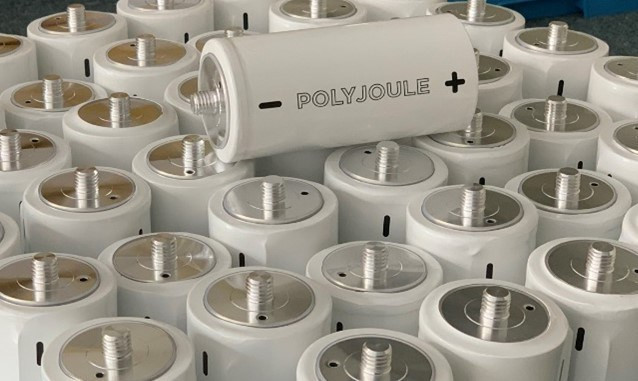PolyJoule, Inc., has announced the manufacturing validation of its Conductive Polymer Battery Technology, after a 10,000+ cell manufacturing run. The new batteries are based on PolyJoule's proprietary conductive polymers and other organic, non-metallic materials, and are designed to suit the needs of stationary power applications where safety, lifetime, levelized costs, and environmental footprints are key decision drivers.
"For most energy storage startups, having a proof-of-concept, a single-layer pouch cell is a big event. For PolyJoule, being able to produce 10,000+ cells using standard roll-to-roll processing in non-cleanroom environments, with extremely high manufacturing yields, is a testament to the PolyJoule team and the level of maturity in our chemistry and design. PolyJoule technology works, and it's ready for large-scale deployment," comments Eli Paster, CEO of PolyJoule.
PolyJoule's conductive polymer cells span the performance curve between traditional lead-acid batteries and modern lithium-ion cells while enhancing service life and reducing the balance of plant costs, due to their no-HVAC thermal management design. The cells are tested to perform 12,000 cycles at 100 percent depth of discharge.
"We see ultra-safe energy storage as a long-term capital asset, rather than a short-term add-on trend in the surging renewables renaissance," Paster notes.
"That means that any chemistry, at the cell-level build, must be fundamentally robust, safe, green, and cost-effective over its lifetime. For grid-level assets, time scales are measured in decades, not years."
The first-generation cell release, the PolyJoule Power Cell, is well suited for mission-critical power applications in the utility and commercial/industrial spaces: power conditioning, peak shaving, frequency regulation, hybrid power energy storage, and high-power datacenter backup. The most recent production run was based on a combination of commercial market demand and product integration. PolyJoule anticipates announcing relevant third-party performance testing and UL certification over the next few months, as commercialization activity ramps up. PolyJoule batteries are manufactured entirely in North America and do not require any special hazmat certifications for transportation via ground, sea, or air.
Read More

